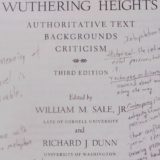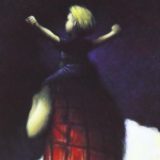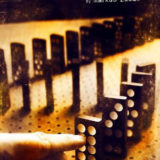Why Every Literature Teacher Should Write a Book
If you want instant credibility and respect from your teenage literature students, you must write a book. There is no faster way to prove to your students that you know what you’re talking about, that you’re an expert, than to read to them from your book.
Every September I stand in front of a new group of eighth graders and I read from an unfinished novel called The Seeing Stone that I’ve been trying to write for twenty years. I don’t read much–just the first chapter–and it’s not very good, but as the story unfolds I see the astonishment on their faces: my teacher is a writer. When I finish, the hands bolt into the air: How long did it take to write? Is it almost done? Where did you get the idea?
I answer their questions then put the book away and continue with the literature class, and at the end of the period one or two students will come up and ask if they can borrow the book and read the rest of it. Occasionally during the year students will ask how the book is coming. Their parents will come up to me in church or at the store and say, “I hear you’re writing a novel. What kind of story is it?” And we’ll talk about writing and books for five minutes or so, and they’ll move on, thrilled that their child is being taught reading and writing by an author.
It doesn’t matter that the book is unfinished, that it will probably never be published. What matters is that I wrote it and shared it with my students.
When junior and senior high teachers ask me how to get respect from their students, the first thing I always say is that you have to be an expert in your field. If you teach science, then your students should think of you as a scientist; if you teach art then they should see you as an artist. My son’s high school band teacher plays in a local jazz band and he’s always inviting his students to their performances. He knows what he’s talking about when he teaches. He’s the real deal.
Teens hate phonies. Read Catcher in the Rye to see what I mean. And teens can spot a phony a mile away. But after you’ve written a book you’re like a guest author that comes every day to teach writing, like a visiting professor of literature. You know what you’re talking about.
Every junior and senior high teacher should have the following concept etched into their brain: Teens don’t care so much about what you know; they care about who you are.
Teens are all about identity and role, because they’re trying to find their own identity and role. Don’t wait for them to define you. Define yourself by showing them who you are: I am a writer, or I am a scientist, or I am musician. And I will help you become a writer, scientist or musician.
So if you teach literature, start writing a book. You don’t have to finish it yet, just write a few chapters and outline the rest. Then share it with your students in the fall. You’ll be amazed at the benefits:
- First, you’ll get respect. Teens really do want to learn, but they want to learn from someone who knows what they’re talking about–they want to learn from an expert. To a teenager, the worst kind of teacher is the one who just opens up the book and marches through it like a zombie. Anyone can do that. The teens themselves could do that. But when you’re an author you’ve done something that very few people have done, and students look at you not as a teacher but as a mentor.
- Second, you’ll show students that anyone can write a book. If you can do it, they can too. You can demystify the process for them and empower your students to think of themselves as writers.
- You’ll also become a better teacher after you’ve struggled to write a book. You’ll undertand the writing process better and you’ll become a better reader. Once you’ve written the first draft of a book, you’ll see things in other books you never noticed before. And your admiration for great authors will increase as you begin to understand how an author shapes his or her story to express meaning.
- Finally, by writing a book you’ll become a better thinker and communicator, and thus a better teacher. The process of putting ideas on paper and shaping them into something coherent, relevant and interesting works wonders on a person. You’ll become more articulate, more observant, and more confident in your abilities after you’ve written a book.
You can do it. I did it, and I’m no one special. An author is just an ordinary person who has the courage and will power to shape their experiences into words. Have courage; exercise your free will. Become the teacher your students deserve.












